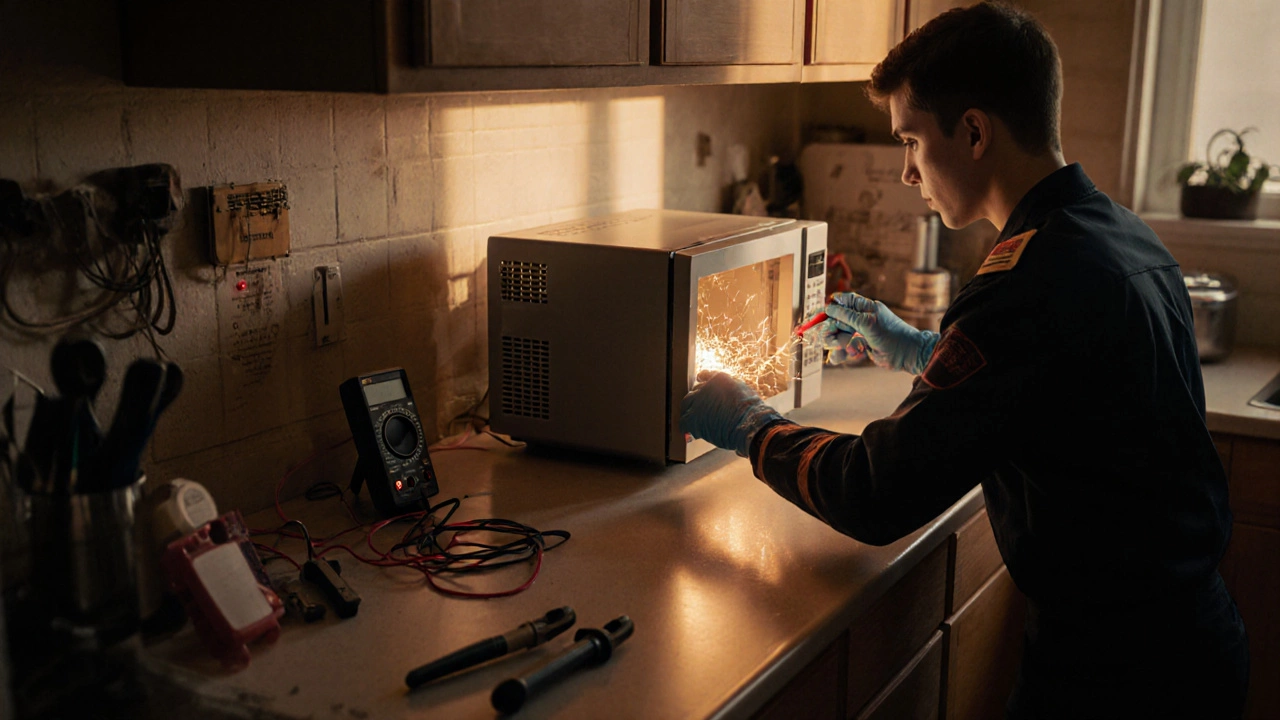When your microwave, a common kitchen appliance used for quick heating and cooking stops working, the first question isn’t just "how do I fix it?" — it’s "is it even worth fixing?" The average microwave cost to repair ranges from £80 to £200, but that’s only half the story. If your unit is over 7 years old, the repair might cost nearly as much as a new one. And here’s the catch: many microwave problems aren’t fixable at all. A blown microwave fuse, a small but critical safety component that cuts power during electrical surges is common and cheap to replace. But if the magnetron — the part that actually generates heat — is dead, you’re looking at £150 just for the part, plus labor. That’s often more than half the price of a new microwave.
Not all failures are equal. Some issues are simple: a broken door latch, a faulty turntable motor, or a tripped thermal fuse. These are usually quick fixes under £100. But if your microwave won’t heat, the problem is likely the magnetron, high-voltage diode, or capacitor — all high-cost, high-risk components. These aren’t DIY-friendly. Trying to open the casing yourself can expose you to dangerous electrical charges, even when unplugged. And if the control board is fried? That’s another £120+ part. At that point, you’re not repairing a microwave — you’re paying to upgrade an old one. Many people don’t realize that modern microwaves are built to be replaced, not repaired. They’re cheaper to buy than to fix after a few years. The average microwave lasts 7–10 years. If yours is near that age, spending £150 on a repair is like putting new tires on a 15-year-old car.
There’s also the hidden cost: time. Waiting for a technician, scheduling a visit, and then waiting for a part to arrive can take days. During that time, you’re stuck reheating food on the stove or buying ready meals. Meanwhile, a new microwave costs as little as £100 and arrives the next day. And newer models are more energy efficient, quieter, and come with smart features you didn’t even know you needed. So before you call a repair service, ask yourself: is this a simple fix, or am I throwing money at a dying appliance? The answer isn’t always obvious, but the data is. Most microwaves over 8 years old aren’t worth repairing. The ones under 5 years? Maybe. And if you’re unsure, check for a blown fuse first — it’s the only repair you can safely test yourself.
Below, you’ll find real guides from Taunton Appliance Repair Solutions that break down exactly what goes wrong, how much it costs, and when to walk away. No fluff. Just facts from local technicians who’ve seen hundreds of broken microwaves — and know when to say "just buy a new one."
Posted by
Orin Trask
0 Comments

Deciding whether to repair or replace your microwave? Learn the real costs, safety risks, and when it makes sense to fix it versus buying new. Based on real repair data from New Zealand.
read more